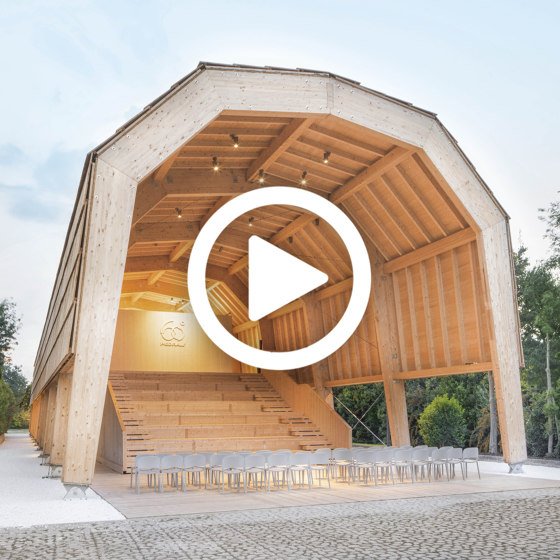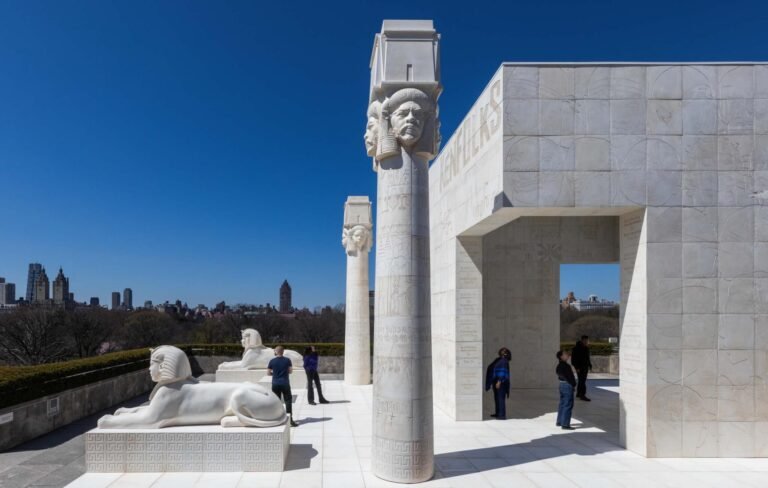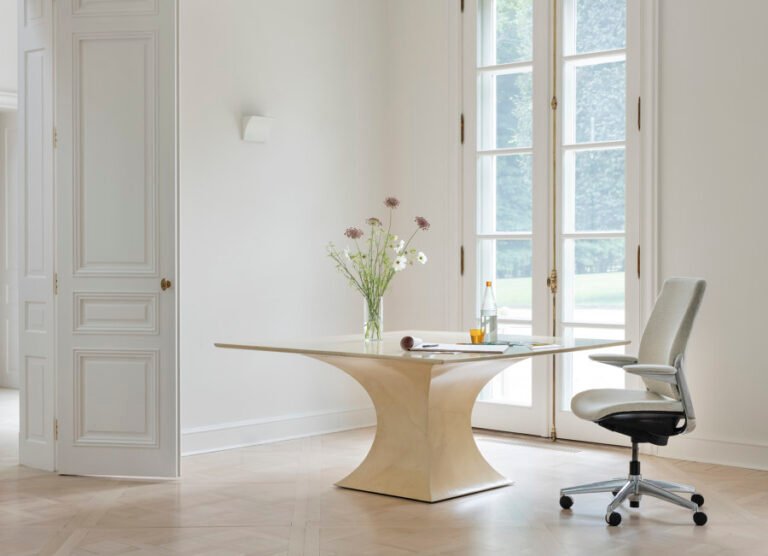ruined stone property transforms into light-filled, modern home in spain
‘fru house’ by Roberto Lebrero and Borja Gómez
Located in the small town of Frumales in Segovia, Spain, ‘FRU house’ is a thoughtful restoration of a property in ruins carried out by architects Roberto Lebrero and Borja Gómez. Blending the existing stone facade with light and contemporary wooden accents indoors, the design reveals a delicate balance between old and new.
Surrounded by crops and hillsides, the site is a mixture of residential and agricultural constructions of different times, with a predominance of masonry walls and tiled roofs. Close to a creek, it is the sum of three plots deformed by successive segregations and filled with buildings in different states of ruin. With that said, ‘the project acknowledges the site and the value of the material in ruins. It sets this as a starting point. Reusing the material, understanding old local construction techniques and choosing the right structural system leads to the final solution,’ explain the architects.
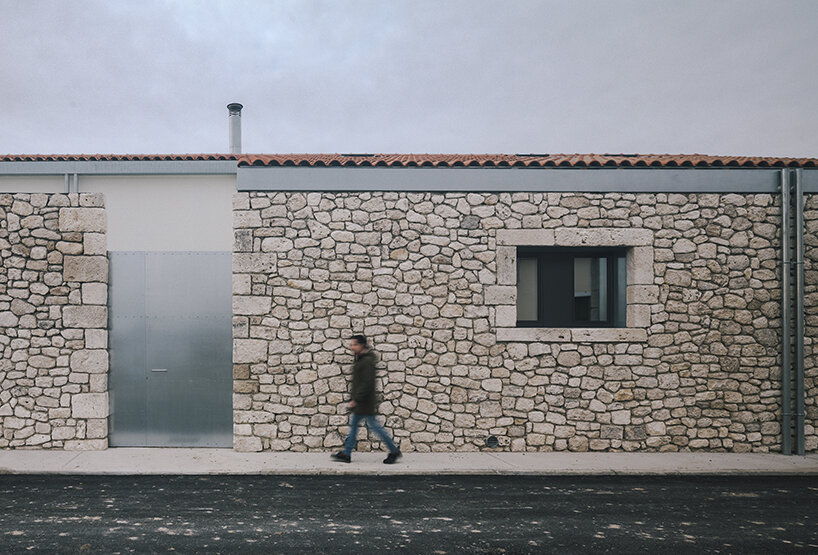
all images © Imagen Subliminal (Miguel de Guzman + Rocío Romero)
injecting a new wooden roof, uplifting the spatial flow
Using a structural concrete frame, Roberto Lebrero (see more here) and Borja Gómez elevated the existing plane above the terrain, setting the foundation from which a lightweight, self-standing wooden structure defines the new roof. This new addition is carefully designed, cut, and set in place to outline the geometry, volume, and materiality of the space. Meanwhile, the multilayered facade recovers the existing stone and surrounds the building, providing excellent insulation and thermal inertia.
The interior is designed as an open, flexible space, with service areas and a small access patio set along the street level. Living rooms look and extend towards the private interior garden, bedrooms are topped with a mezzanine floor with no specific use, and windows are carefully set to capture views and light, allowing multiple cross-views. ‘The spatial sequence provided by the patio, terrace, and garden interlaces interior and exterior through a series of intermediate spaces that provide cross-views, transparencies, and reflections,’ notes the team.
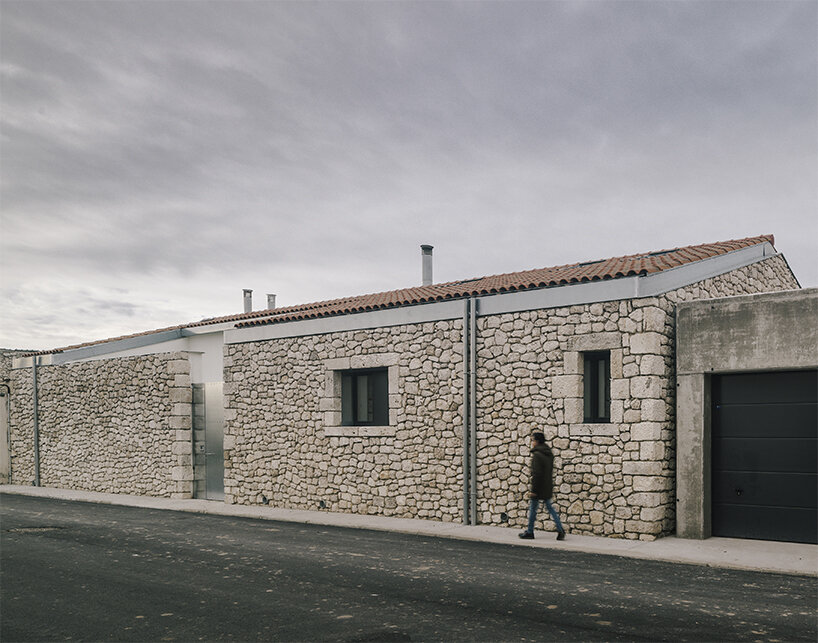
view of ‘FRU house’ by roberto lebrero and borja gómez from the street
Due to the harsh, local weather conditions, with very cold winters and summers and high daytime temperatures, the architects implemented traditional strategies, with special attention to sustainability and energy saving criteria to achieve the best rating according to Spanish standards. Indeed, the house is wrapped in generous insulation, forming high inertia enclosures that take advantage of the thermal oscillation between day and night. Moreover, both roof height and window locations allow for cross ventilation when needed and a central fireplace produces and distributes heat to the whole house during the cold months.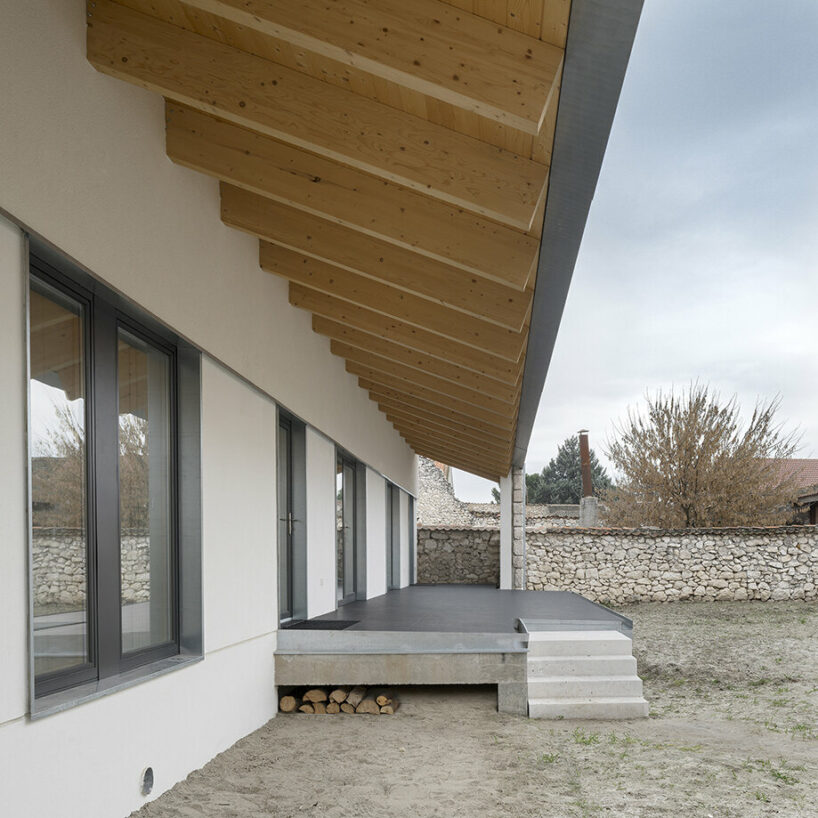 contemporary restoration of a traditional stone design
contemporary restoration of a traditional stone design
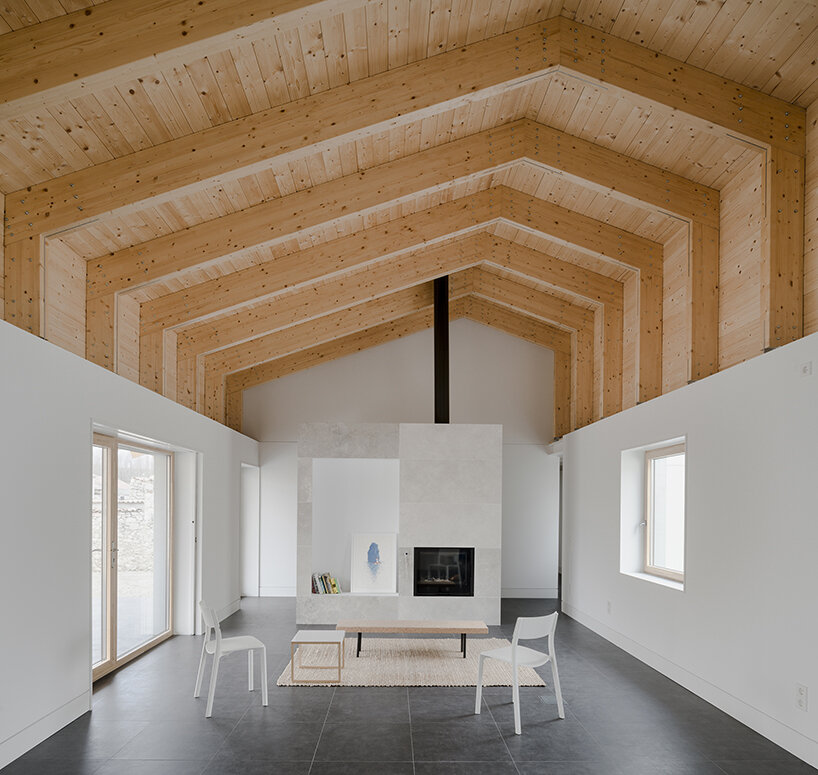
living space revealing the new, volumetric wooden roof
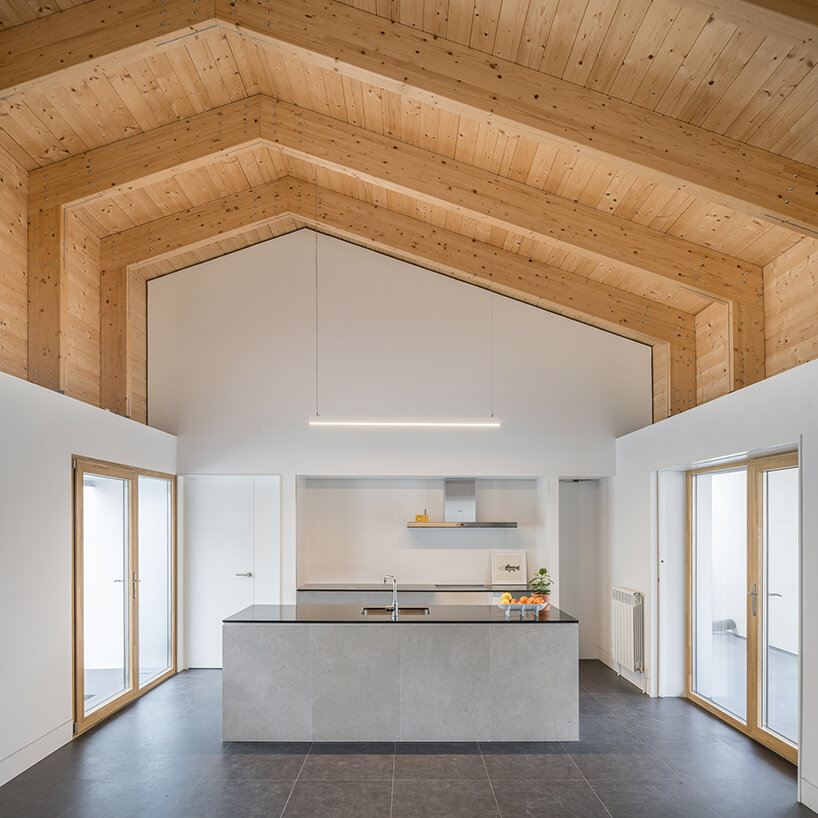
kitchen area

